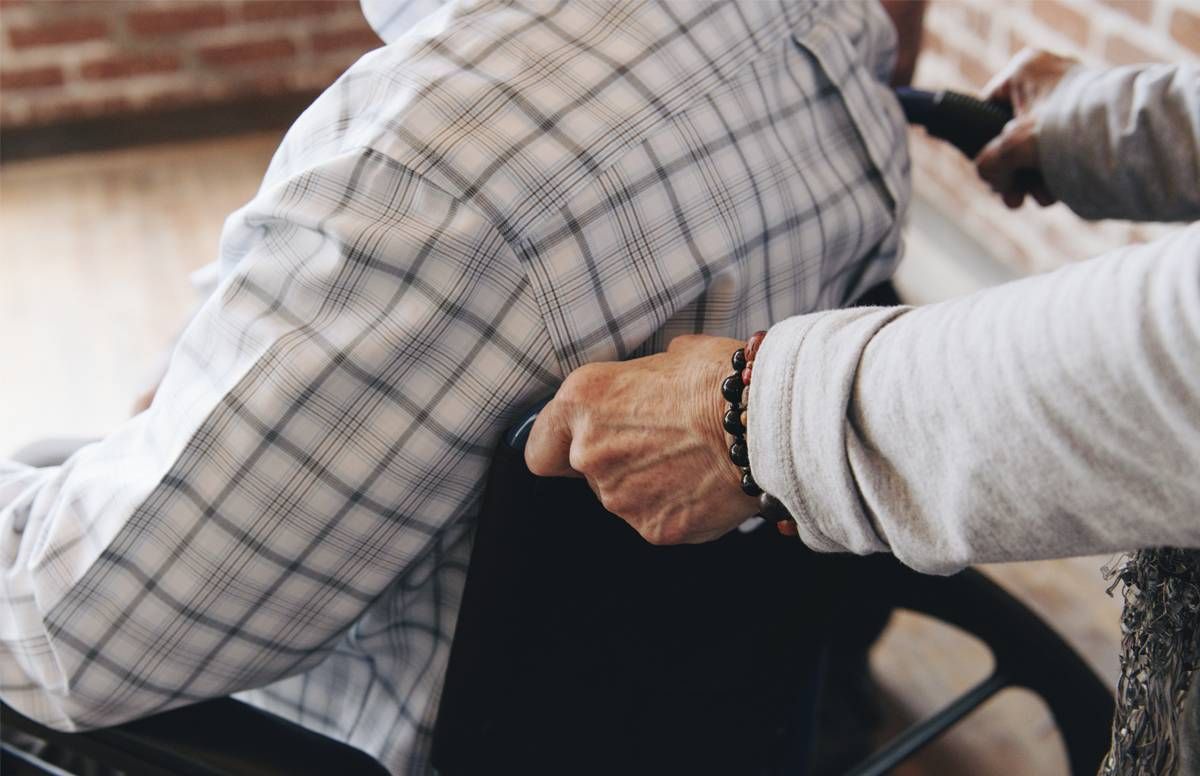When Caregiving Is Part of Retirement: Pro Tips
What to expect and key steps to take if you’re a caregiving newbie
A number of women who answered a questionnaire on the website Retirement Voices last year wrote eloquently about the decision they made to leave their careers in order to care for a parent or ailing spouse.

They’re not alone. According to various sources, including the Institute on Aging and the Family Caregiver Alliance:
- Upwards of 75% of all caregivers are female
- One in three boomer women cares for a parent
- Nearly four times as many women as men give up work entirely due to caregiving demands — and an increasing number of them are over 50
Which suggests that if you’re a woman who’s nearing retirement or already there, odds are you’ll end up in the role of caregiver for a spouse, aging parent or other family member.
That said, we talked to an expert for some guidance on what to expect and key steps to take — especially if you’re a caregiving newbie. She’s elder-law attorney Cathy Sikorski, who herself has been a significant caregiver for eight family members and friends — so she knows whereof she speaks! In fact, she’s written two books on the subject: Showering with Nana: Confessions of a Serial (Killer) Caregiver and Who Moved My Teeth? Preparing for Self, Loved Ones and Caregiving.
"Keep a sense of humor, find things that make you laugh. Because if you’re not laughing, you’re crying!"
As you can tell from her book titles, Cathy manages to find some humor in this otherwise serious topic. Most importantly, her advice is spot-on.
What’s the first piece of overall advice or reassurance you’d give to a novice caregiver?
Caregiving really can be overwhelming and scary, and most of the time you’re likely to feel unprepared, like you don’t know anything or where to turn for help. Know that there are tremendous online resources at your fingertips like AARP, the Alzheimer’s Foundation, and all those dot-orgs that you haven’t needed until now.
Get connected to your local aging and adult services agencies — they’ll have all the local information you need to help you in the short run.
In your latest book, you’re adamant that getting a durable power of attorney, or POA, is Job One when you assume the caregiver role for someone. Can you explain?
A POA is a powerful document that gives someone the authority to act for another person in legal, financial or health care matters. As a caregiver, it’s important to have one because it enables you to make decisions on someone’s behalf, which is vital in a crisis. It makes it easier to talk to people like doctors, bankers and insurance companies; many won’t speak to you without one. And it avoids the horrors of the guardianship process, the only other option if you don’t have a POA.
If there’s family conflict about a medical care or financial decision, I strongly advise people to have a POA in place yesterday — as in before you need it.
Do you need a POA even for your spouse?
Yes! Consider this scenario: You and your spouse each have your own 401(k) retirement accounts, which by law, can only be owned by one person. Your spouse has a massive stroke and is incapacitated, requiring long-term care. Without a POA, you have no access to your spouse’s money to pay for it. If you’ve already stepped out of the workforce and are living on a fixed income, you could be in deep financial trouble.
I was struck by your advice to 'stop paying those medical bills!' Why do you tell caregivers this?
Just because you get a bill from a doctor or hospital doesn’t mean you have to pay it right away.
Some providers will send you a bill requesting payment while your insurance company is still processing your claim. Since many seniors have both Medicare and a supplemental Medigap insurance plan, the claim must be submitted to both plans before you end up with a bill that reflects an accurate balance due — and it’s usually substantially less than the original bill you received.
Always call to see if a bill is legitimate, that the provider has all the appropriate insurance information on file and that all insurance payments have been applied. It’s a whole lot easier to do this than try to get your parent’s money back if you overpaid.
It takes a lot of patience to be a caregiver. In your book, you list sixty ways to be more patient. Which of these tips you find yourself using most often?
When you’re a caregiver and in it for the long haul, you need to find tools for dealing with the situation.
One of the toughest situations is when someone has dementia. My best advice is to meet them where they are. Just because you color, sing or play dress-up with your grandmother doesn’t mean you’re infantilizing her. You’re spending time in a productive and useful way for her — and it’s better than yelling because she can’t remember where the keys are.
Don’t be afraid to take small journeys with them; it helps you be more patient.
And keep a sense of humor, find things that make you laugh. Because if you’re not laughing, you’re crying!
Women who retire in order to be a caregiver may be adjusting to the loss of their career along with getting used to their new role. Any advice for them?
If you’ve had kids, you often see in retrospect that the journey of raising them to adulthood is amazing, even though it’s a tough job and you seldom appreciate the gift you’ve been given when you’re in the midst of it. Similarly, if you’ve given up something to take on the job of caregiver, you’ll have some tremendously rewarding experiences along with some frustrations. When it’s done — and know that it will be — recognize what you’ve sacrificed and what you’ve contributed, and give yourself credit for that.
Another piece that’s too often overlooked is the financial hit women take by leaving their careers earlier than planned.
If you have a parent or spouse with early-onset dementia or diabetes, for example, you may see the handwriting on the wall when it comes to you taking on caregiving down the road. So do what you can to prepare financially — save more to your 401(k), max out your earnings, talk to a financial adviser. If you see a caregiving situation coming that’ll require you to step away from your job, plan for it financially as much as you can.

What’s the most important message you want to convey to women who are entering the caregiving realm for the first time in retirement?
I have three.
First, get prepared, both as a caregiver and for yourself. In other words, get your own legal documents in order. If you see it coming at you, read my book. Or consult an attorney.
Second, get support. It can be in person or online, but there are lots of wonderful people on the same journey who’ll help you understand you’re not alone.
Third, give yourself a pat on the back. Not everyone can, or is willing to, take on this role. You’re a rock star for doing it.
(This article previously appeared in Retirement Voices.)

